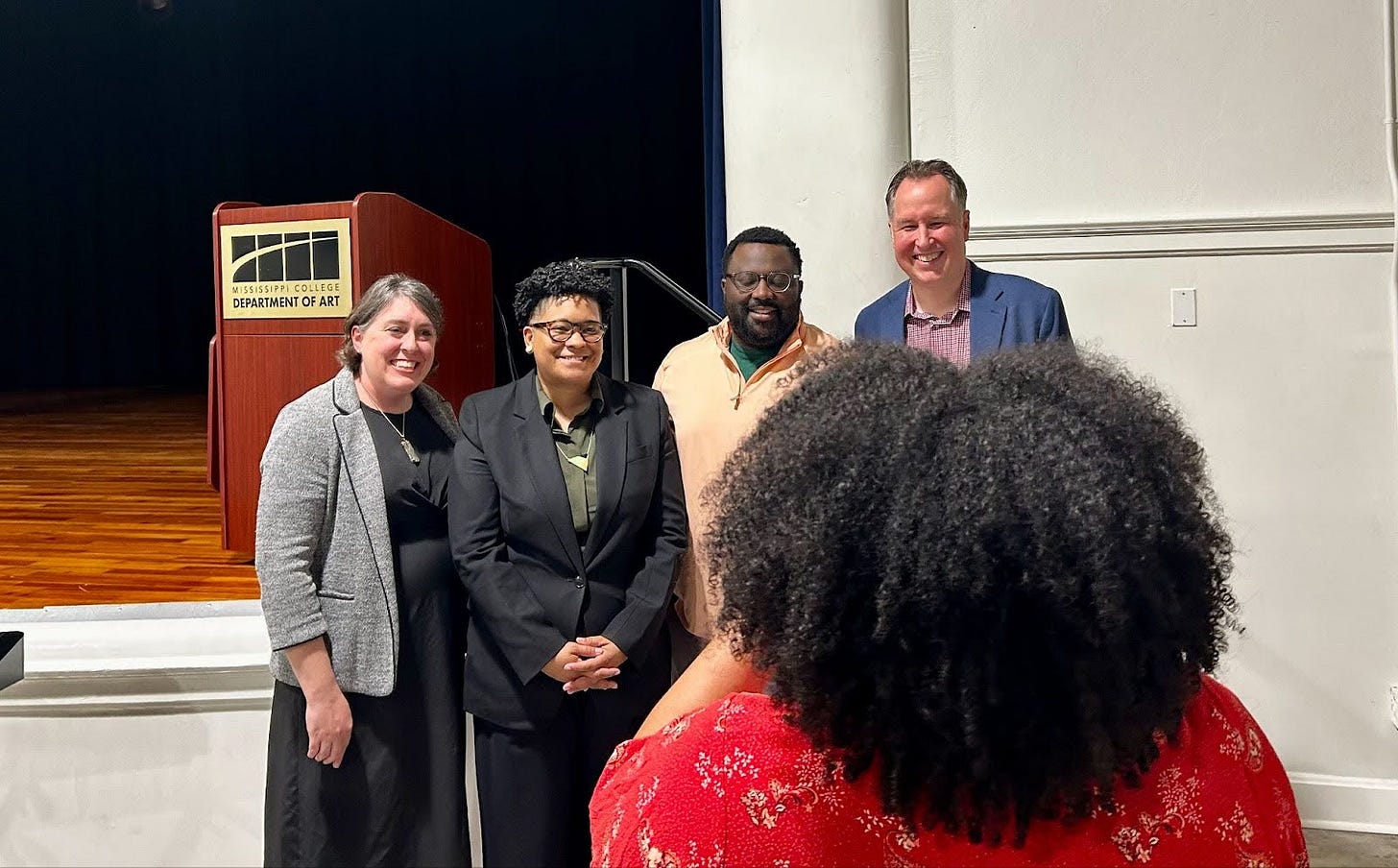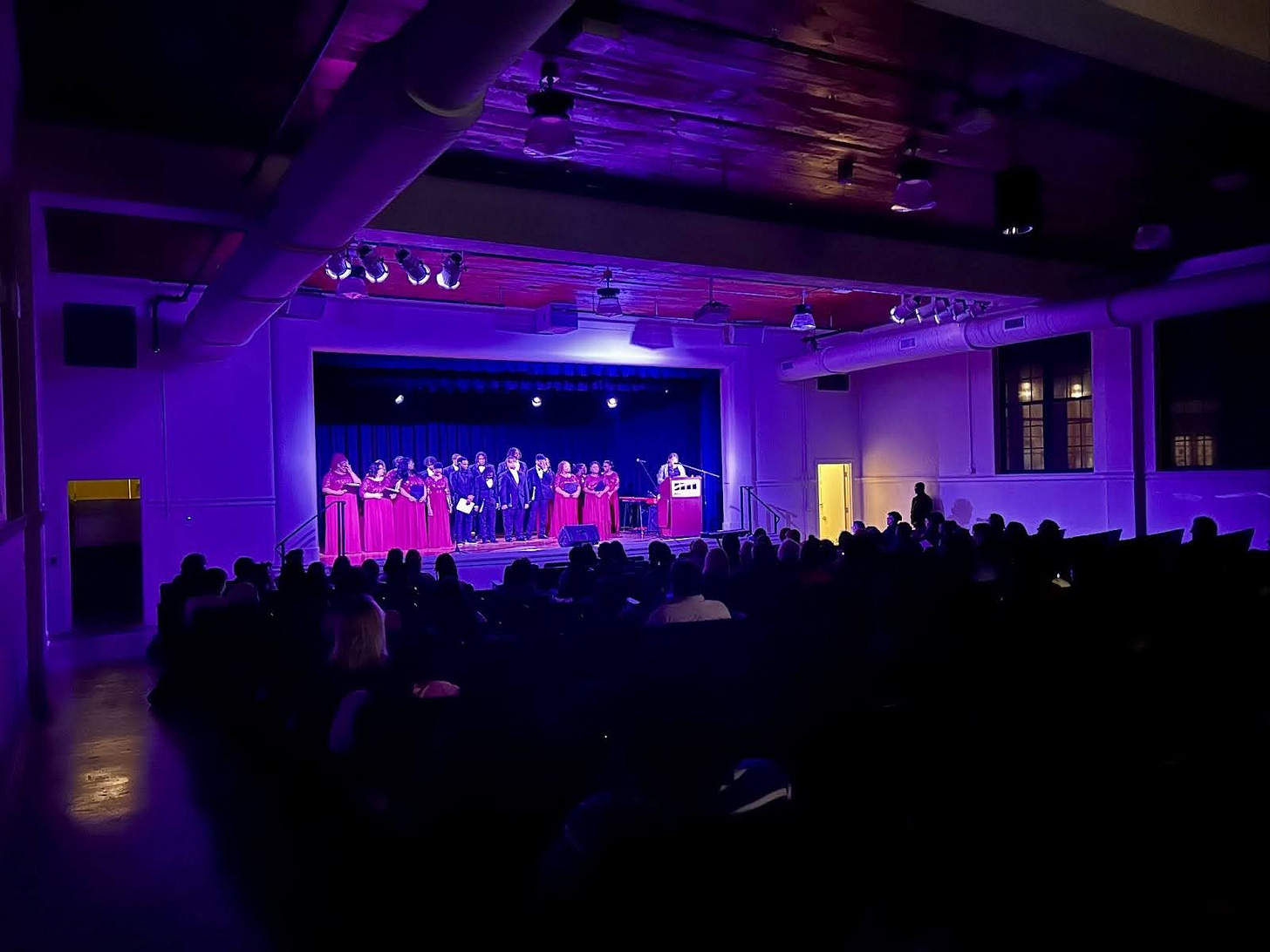Kentucky Professor Tells Black Women’s Stories at MC AAS Lecture
Dr. Vanessa Holden was the African American Studies program’s third annual spring speaker.
In celebration of Black History Month, Mississippi College’s African American Studies program hosted a lecture with the University of Kentucky’s African American Studies director, Dr. Vanessa Holden, as the AAS lecture series speaker for the spring semester.
Holden spoke following a moving choral performance by the Hinds Community College’s Utica Campus choir. The event was the third annual spring lecture in the program’s history. Taking place in the Entergy Theatre at the Gore Arts Complex, the lecture series centered around Holden’s book, “Surviving Southampton: African American Women and Resistance in Nat Turner’s Community.”
The Mississippi College African American Studies Program, in collaboration with the Utica Institute Museum, the MC Multicultural Student Association, and the Mississippi Humanities Council, presented the event.

“Awareness needs to be brought, more than discredited,” MC student & lecture attendee Andrew Rideau commented on the importance of studying African American women’s roles in historical resistance movements. “We should be sure we give credit while our African American women are still alive today, because a lot of women out the past have not received the credit that deserved while they were still alive. ‘Hidden Figures’ and so many other movies alike reference so many amazing intelligent strong women, but not while they were still here.”
The program opened with one of the MC African American Studies program directors, Professor of English Kristi Melancon, welcoming the audience and drawing focus to the Mississippi Humanities Council attendees, thanking them for their support for the program and the event.
This was followed by a musical concert from the Hinds Utica concert choir, led by the Director of Choral Music, Harry Watson.
Post-performance, attorney at Butler Snow and AAS board member, Bri Caldwell, came into view to introduce Dr. Vanessa Holden. Holden is a scholar of African American history, as well as women and gender studies. She currently serves as the director of the African and African American Studies program and the Central Kentucky Slavery initiative at the University of Kentucky.
The lecture explored several critical yet overlooked contributions that African American women and children made in the Southampton Rebellion of 1831, also known as “Nat Turner’s Rebellion.” Holden’s research earned her the 2022 James H. Broussard Best First Book prize, which recognized her contributions to historical research and offered valuable insight into the roles of African American women in resistance movements.
“I started this project as an undergrad and wrote an honest thesis about gender and slavery,” Holden explained. “Then, when I went to grad school, I was able to dive more into women's roles in resistance and rebellion and that was a question I always had: ‘Why don't they talk about women?’ They're there, so what's the story?”
Holden stated that a curious mind is what drove her to pursue studies like her own. Encouraging other minds to be curious and ask questions, she believes that a lot of Mississippi history is intertwined with the stories of contributions of the Black community. She emphasizes that local stories are just as powerful to history, because they offer a direct connection to the present, allowing people to see how history shapes the present.

“If it's something that you feel called, do it, but don’t do it alone,” Holden said of historical studies. “Do it in a community to find other people who are interested, too – because, ultimately, the goal should not just be discovering the past; it should be sharing it. You want to do that in community.”
Before closing the event, professor of history and AAS co-director Christian Pinnen sought to enrich the public’s understanding of a historically significant movement in American history. Attendees had the opportunity to engage and gain more knowledge from Holden during question and answer session after the lecture.
“I think the most important thing is probably getting [the story] out there,” said MC alumna Amy Atwood. “I would say I'm not the type to go research anything historical, and a lot of people are probably the same way – they're not going to go looking for that, and so having these types of lectures where people who have done all that research can get it to the student body is important.”



